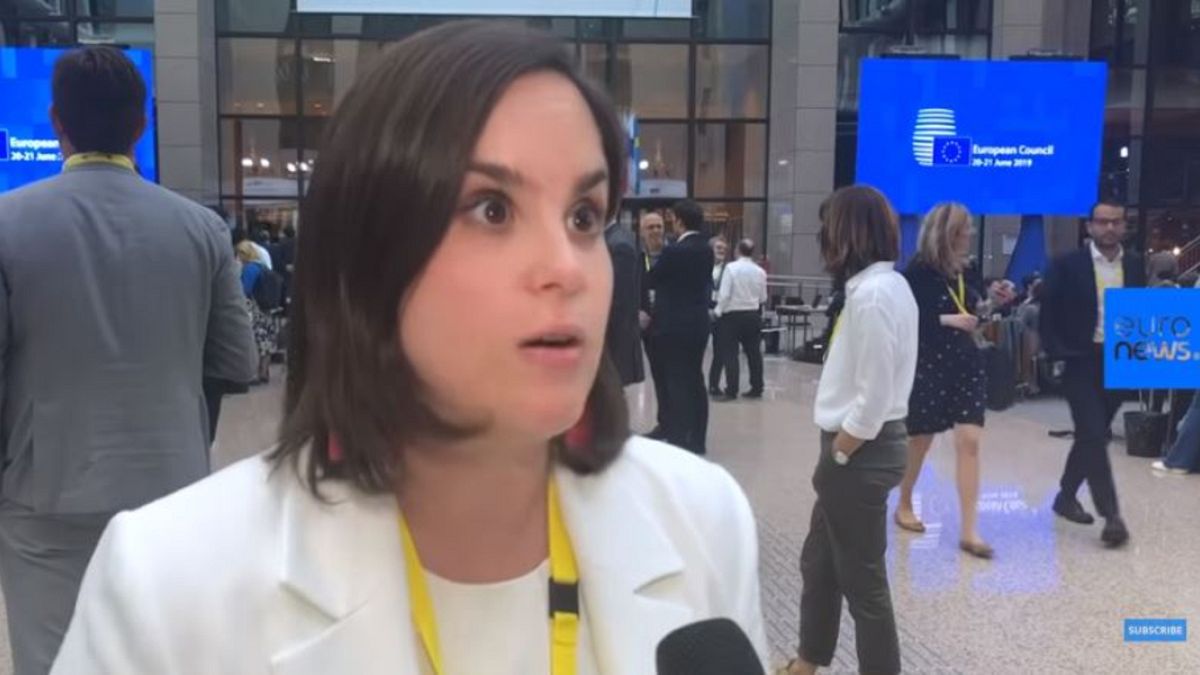Journalists from Spain, Poland, Italy and more tell us what their country is focused on.
At the European Council it's gossip and intrigue that pass through the halls as EU leaders work to find a deal on who will take up the top EU jobs. Hundreds of journalists packed into the Council building in Brussels on Thursday to discuss who will inherit Jean-Claude Juncker's role as European Commission president.
There’s a lot of hearsay — and there's yet for EU leaders to find a deal — but what exactly are the national priorities? Euronews spoke with some of the journalists here and asked them what their countries want from the next European Commission president.
Italy: 'Decent economic portfolio'
Beda Romano, a correspondent for Italy’s Sole 24 ORE, said: "The Italian government is supported by a coalition of two parties. Neither of the two belongs to the four main European parties, so for the time being, the Italian government is pretty much on the sidelines in these negotiations."
"So I don’t think the Italian government will be able to have a president of the Commission or the European Council, or even the Parliament. And as I said, the main objective, the main aim is to try and get a decent economic portfolio within the new European Commission.”
Spain: Sanchez speaking English a 'major change'
Esther Herrara, a Spanish cross-platform journalist, told Euronews: “The major change is that (Prime Minister) Pedro Sanchez speaks English. So the former prime minister of Spain, Mariano Rajoy, couldn’t speak a word and that changes things."
"I mean there are some sources that said that that has changed for Spain because they can talk, they can talk with other members of the European Council — that changes a lot. And so they can explain better what they think, what kind of European they want, what kind of Europe they want.”
Latvia: Small country 'actively participating'
Artjoms Konohovs, correspondent for Latvian Public Radio, said: “What is different this time around is that Latvia, being a small country, is actually participating in this quite actively because Latvian Prime Minister Krisjanis Karins is, in fact, one of the people who participated in this group of six prime ministers who are then trying to facilitate discussions and conversations around it."
"And so that makes more difference and I think people are quite interested to the fact that we are so involved in this process.”
Poland state TV: Commission president 'should respect us'
Dominika Cosic, a correspondent for Polish state television TVP, told Euronews: “From the Polish point of view, it is very important that this person should share our values and should respect us."
"It shouldn’t be someone so much controversial and offensive towards Poland like for example Vice President Frans Timmermans. It is a reason why Poland is against him. And from the other side, as you mentioned, for us it is important to keep this fragility for our region, for this so-called new, or Eastern Europe. That’s why our Visegrad group, it means Poland, Slovakia, Czech Republic and Hungary will support a common candidate,” she said.
EU leaders failed to reach a deal on choosing the bloc's top jobs on Thursday. Another Council summit planned for 30 June to pick up discussions.
